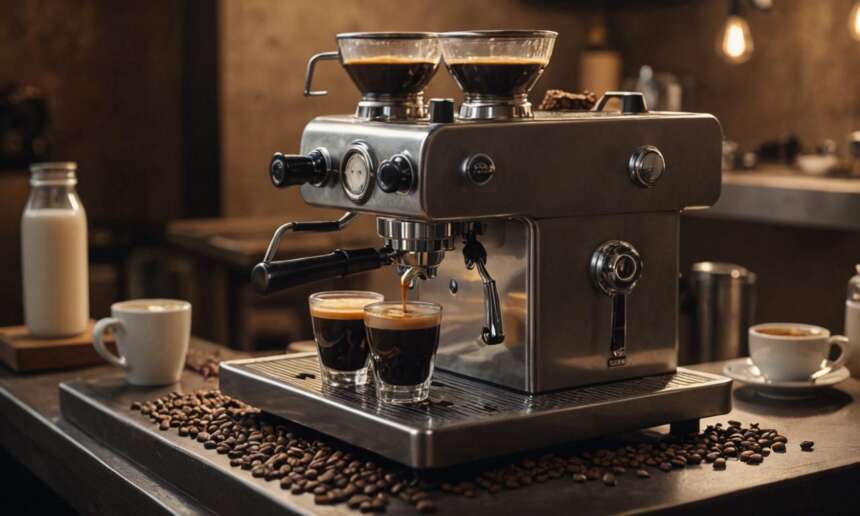In the realm of coffee culture, a coffee barista holds a significant role, serving as the master craftsman behind the creation of that perfect cup of coffee. From selecting the finest beans to skillfully brewing and presenting the beverage, the barista is akin to an artist in a canvas, meticulously crafting each cup with precision and care.
The Role of a Coffee Barista
A coffee barista is not merely a server but a skilled professional who possesses a deep understanding of coffee varieties, brewing techniques, and flavor profiles. Their primary responsibility revolves around preparing and serving coffee beverages to customers, ensuring that each cup meets the highest standards of quality and taste.
Skills and Expertise
Being a successful coffee barista requires a blend of technical expertise, creativity, and customer service skills. They must master the art of espresso extraction, milk frothing, and latte art, all while maintaining efficiency during peak hours. Additionally, a keen palate and an understanding of flavor nuances enable them to recommend the perfect coffee to suit individual preferences.
Customer Interaction
Beyond the technical aspects, the role of a coffee barista also entails fostering positive customer experiences. They serve as brand ambassadors, engaging with patrons, and creating a welcoming atmosphere within the coffee shop. Whether it’s striking up a conversation or remembering a regular’s favorite drink, building rapport with customers is key to success in this role.
Becoming a Coffee Barista
While formal education is not always a requirement, aspiring baristas often undergo training programs or apprenticeships to hone their skills. These programs cover everything from coffee bean origins to equipment operation and customer service techniques. Passion for coffee and a willingness to learn are paramount for those seeking to embark on a career as a barista.
Continuous Learning
The world of coffee is ever-evolving, with new brewing methods, coffee trends, and flavor profiles emerging regularly. As such, a successful barista must remain adaptable and committed to continuous learning. Whether through attending workshops, participating in competitions, or experimenting with new techniques, staying abreast of industry developments is essential for growth and excellence in the profession.
Impact on Coffee Culture
Beyond their immediate role in coffee preparation, baristas play a significant role in shaping and advancing coffee culture globally. They serve as custodians of tradition while also driving innovation and experimentation within the industry. Through their passion, skill, and dedication, coffee baristas elevate the coffee experience, turning a simple beverage into an art form.
Community and Collaboration
Coffee shops often serve as hubs of community interaction, with baristas at the center of this social fabric. They foster connections among patrons, facilitate conversations, and create a sense of belonging within the coffee shop environment. Furthermore, collaboration among baristas and coffee enthusiasts through events, tastings, and educational sessions enriches the collective coffee experience.
In essence, a coffee barista is much more than a person behind the counter; they are purveyors of passion, craftsmanship, and hospitality, enriching the lives of coffee lovers one cup at a time.
Equipment Mastery
One of the crucial aspects of being a proficient coffee barista is mastering various types of equipment used in coffee preparation. From espresso machines to grinders and milk frothers, a deep understanding of how each component functions ensures consistency and quality in every cup served.
Environmental Sustainability
Modern coffee culture increasingly emphasizes sustainability and ethical sourcing practices. Baristas are often at the forefront of this movement, educating customers about the importance of choosing sustainably sourced beans, reducing waste, and supporting environmentally conscious practices within the coffee industry.
Frequently Asked Questions
| Question | Answer |
|---|---|
| What are some common coffee drinks a barista prepares? | Common coffee drinks include espresso, cappuccino, latte, macchiato, americano, and various flavored coffee beverages. |
| Do baristas need formal education? | While not always required, formal education or training programs can help aspiring baristas develop essential skills and knowledge. |
| How important is customer interaction for a coffee barista? | Customer interaction is vital as it contributes to fostering positive experiences and building customer loyalty within the coffee shop. |
| What role do baristas play in promoting sustainability? | Baristas often educate customers about sustainable practices and may work with coffee shops that prioritize environmentally friendly sourcing and operations. |




